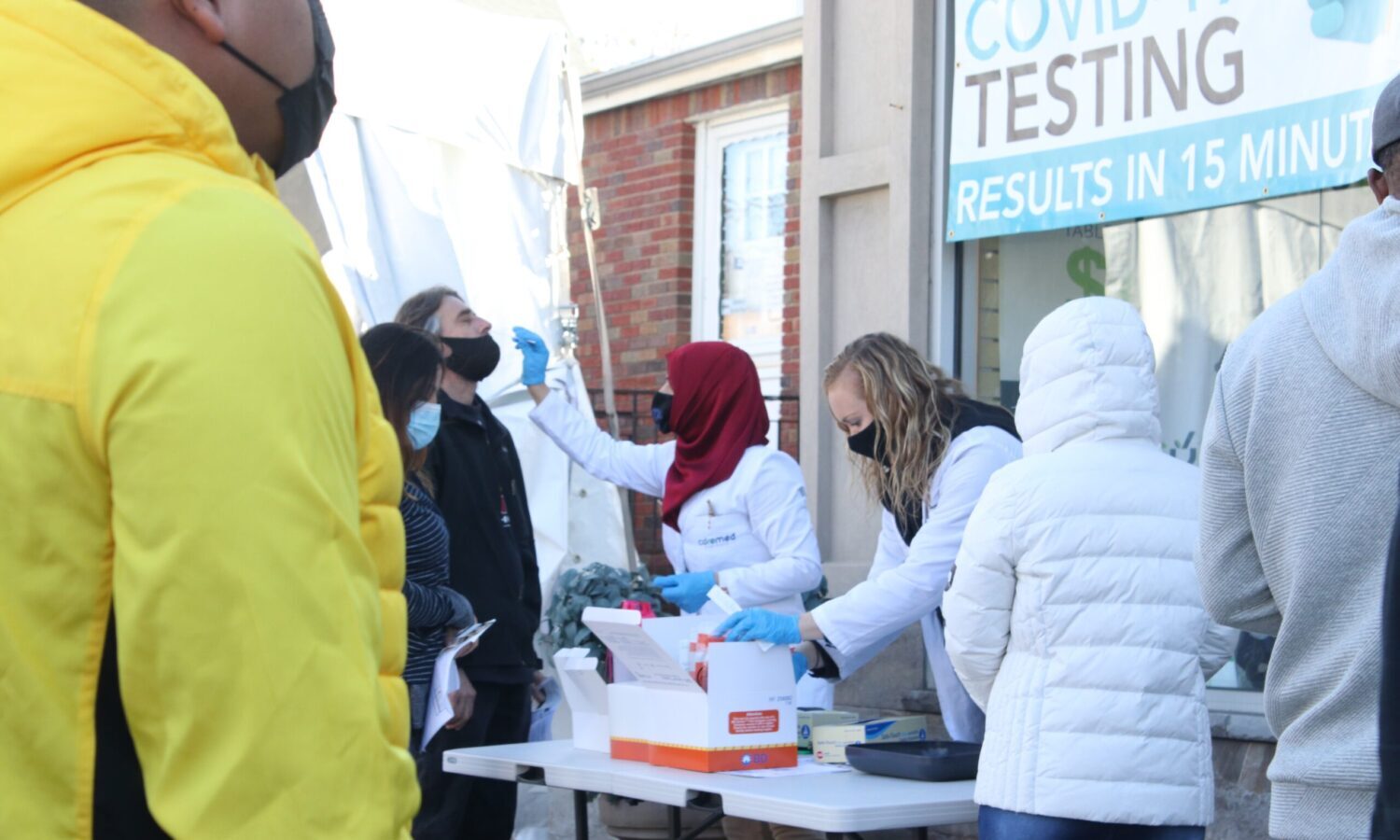Monitor your symptoms and be on the lookout for chest pain, trouble breathing, and confusion, seeking medical help if any of these pop up.
The Omicron COVID-19 variant is the most dominant variant in the U.S, bringing the country back to a high number of cases, the likes of which we were experiencing a year ago. While there are vaccines in circulation, many will still test positive for the virus. What should you do?
Isolate as quickly as possible
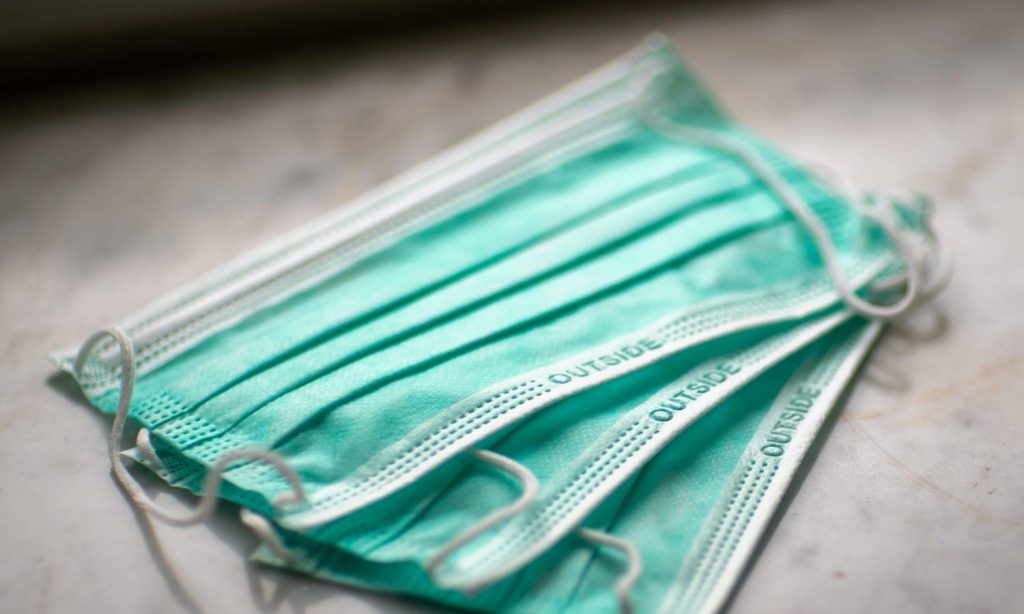
As soon as you get your results, it’s important to isolate yourself and stay away from other people. If you learn of your result while outside, be sure to put on a mask and go home as soon as you can.
If you live with roommates or family, you’d ideally want to have a room to yourself, where you limit your contact with others. To minimize spread, having someone bring your food to your door can help. Also, if there are several bathrooms, leaving one for the infected person is safest. People who enter the room should wear masks and open the room’s windows, allowing for airflow. When entering other rooms and common areas, make sure to wear a high-quality mask and for other people to wear masks as well.
Monitor your symptoms
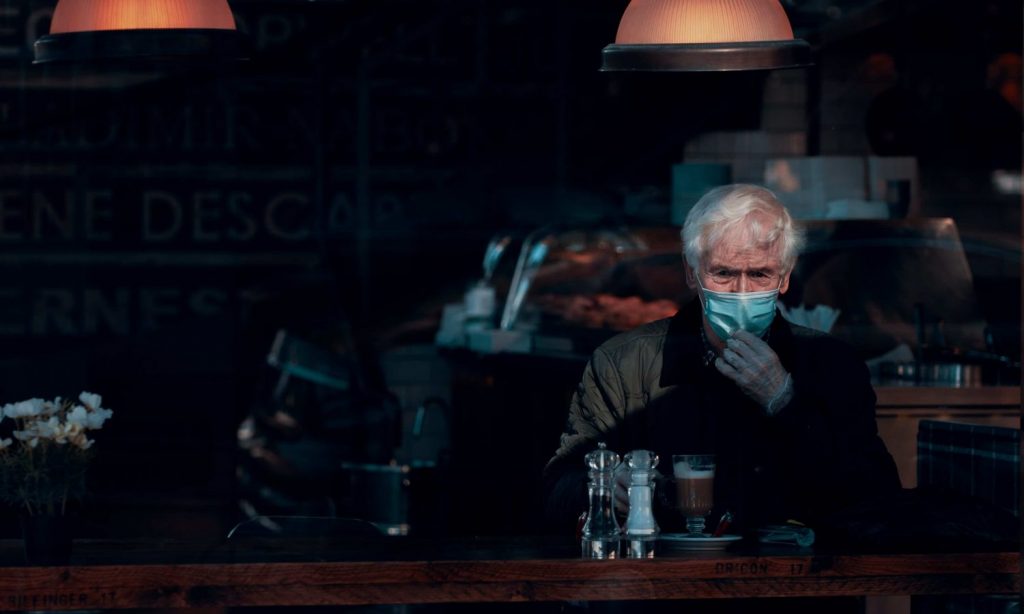
RELATED: Should You Get Your COVID-19 Booster If You’re Sick?
Monitor your symptoms and be on the lookout for chest pain, trouble breathing, and confusion, seeking medical help if any of these pop up. You could also buy a pulse oximeter, which monitors your oxygen levels. If your readings dip below 93%, you should seek medical help.
The Centers for Disease Control (CDC) recommends staying isolated for 10 days, starting the count from 0 the day you start showing symptoms. Day 1 qualifies as the day after. On day 10, you should get a COVID-19 antigen test over a PCR, helping you confirm you’re not contagious. A PCR test could continue to come out positive for days or months following your recovery.
If there are no symptoms
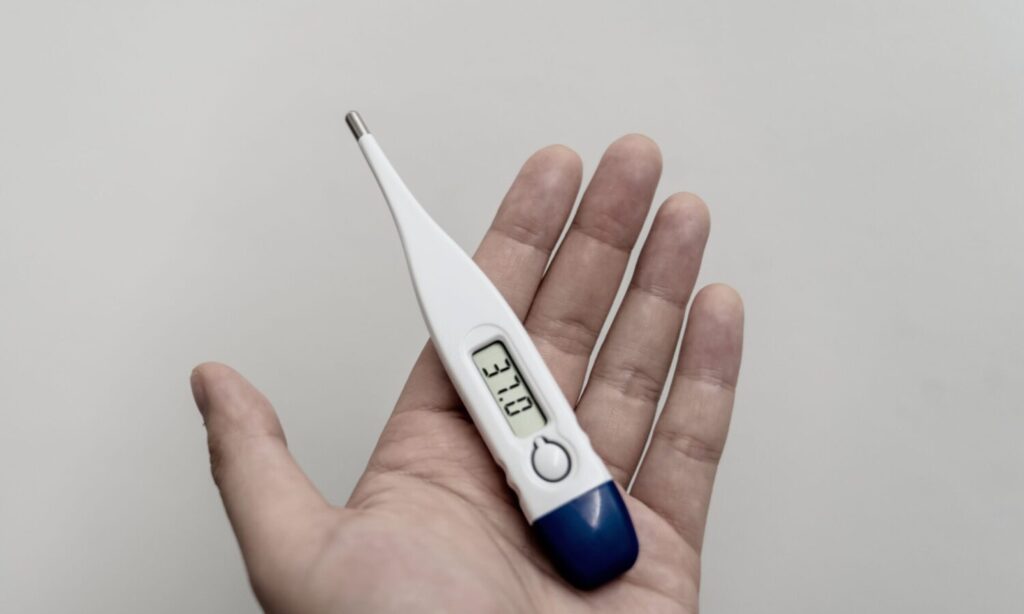
If you don’t have symptoms of illness, you can go out for walks provided there’s space between yourself and others. Wear a mask and keep your distance for safe-keeping. You should still wait the 10 days suggested by the CDC and minimize your contact with other people, behaving as if you were symptomatic.
If you didn’t test positive but were exposed to someone with COVID-19
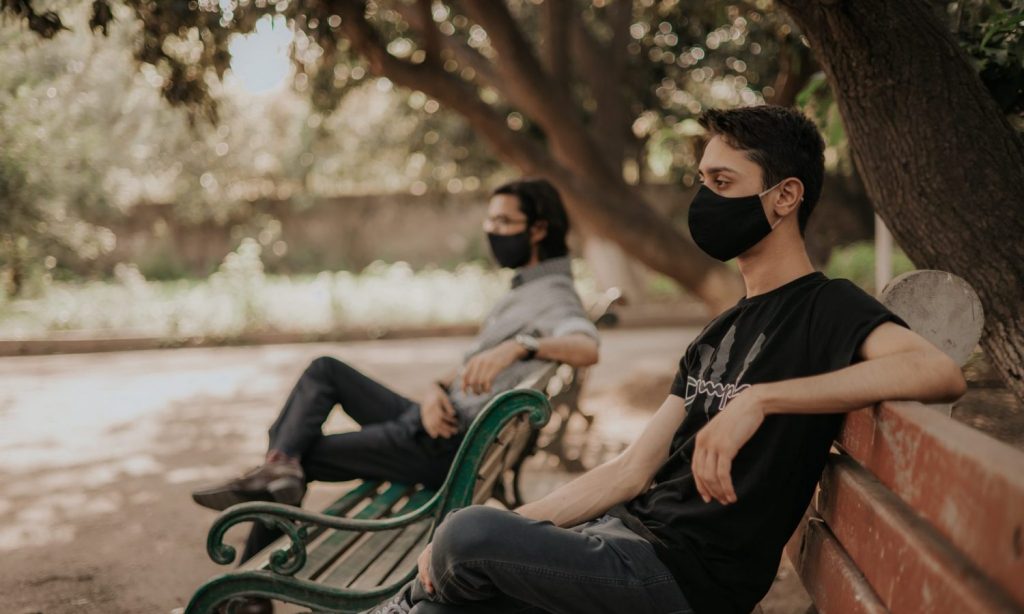
RELATED: Throughout The Pandemic, This Health Risk Has Been Rising In Americans
You should get tested 5 or 7 days after your exposure and wear a face mask in indoor settings as you wait for your results.

